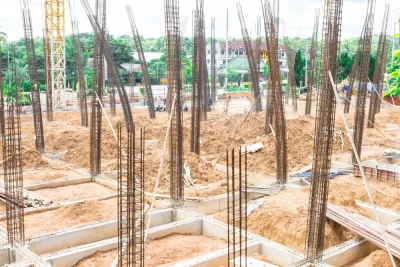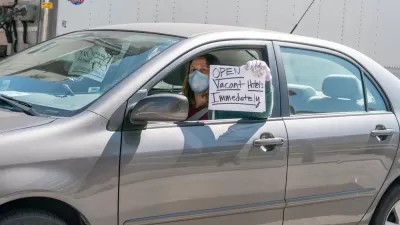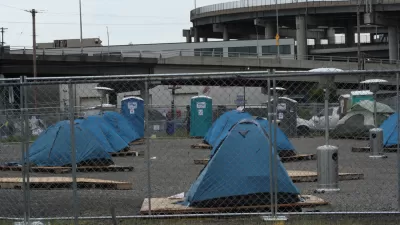Analysis from the Joint Center for Housing Studies of Harvard University predicts the pandemic will reduce rents, but only at the top of the market.

"While it is too early to know how COVID-19 will affect rental markets, early signs suggest another slowdown in demand is coming," according to an article by Whitney Airgood-Obrycki.
Data from the past three years informs the prediction that rental demand. In terms of historic demand, in 2017 and 2018, demand receded, according to Airgood-Obrycki, and only increased slightly in 2019 (and at a much slower pace than demand increased in every year from 2004 to 2016). But in a drastic difference from the last three years, the new wave of decreasing rental demand is likely to be caused by unemployment.
The situation is also clearly distinct from the last recession, when homeownership collapsed, pushing demand toward rental markets. Foreclosures could increase in the future, however, changing the equation as the economic crisis deepens and lengthens. "Even so, it currently looks unlikely that transitions from homeownership to renting would match the scale of the previous recession," according to Airgood-Obrycki.
Future construction could also change the whole equation, according to Airgood-Obrycki. New data from the U.S. Department of Commerce indicates that construction slowed drastically in the past month. Single-family home construction in March fell 17.5% from February, while multi-family housing starts fell 32.1% between February and March. The industry is laying off workers in large numbers as well, preparing for worse.
Airgood-Obrycki's summary of the situation, after surveying all the indicators, is that rent will only get cheaper at the high-end of the market. "Cooling demand could soften rents at the high end of the market, but those benefits are unlikely to translate to lower rents at the bottom end as households compete for an already limited low-rent supply." Airgood-Obrycki assessment's thus resembles a recent prediction by analysts from the Brooking Institution—that the coronavirus is likely to deepen social and economic inequality in the country.
FULL STORY: RENTAL MARKET LIKELY HEADED FOR A SLOWDOWN

Planetizen Federal Action Tracker
A weekly monitor of how Trump’s orders and actions are impacting planners and planning in America.

Chicago’s Ghost Rails
Just beneath the surface of the modern city lie the remnants of its expansive early 20th-century streetcar system.

San Antonio and Austin are Fusing Into one Massive Megaregion
The region spanning the two central Texas cities is growing fast, posing challenges for local infrastructure and water supplies.

Since Zion's Shuttles Went Electric “The Smog is Gone”
Visitors to Zion National Park can enjoy the canyon via the nation’s first fully electric park shuttle system.

Trump Distributing DOT Safety Funds at 1/10 Rate of Biden
Funds for Safe Streets and other transportation safety and equity programs are being held up by administrative reviews and conflicts with the Trump administration’s priorities.

German Cities Subsidize Taxis for Women Amid Wave of Violence
Free or low-cost taxi rides can help women navigate cities more safely, but critics say the programs don't address the root causes of violence against women.
Urban Design for Planners 1: Software Tools
This six-course series explores essential urban design concepts using open source software and equips planners with the tools they need to participate fully in the urban design process.
Planning for Universal Design
Learn the tools for implementing Universal Design in planning regulations.
planning NEXT
Appalachian Highlands Housing Partners
Mpact (founded as Rail~Volution)
City of Camden Redevelopment Agency
City of Astoria
City of Portland
City of Laramie





























